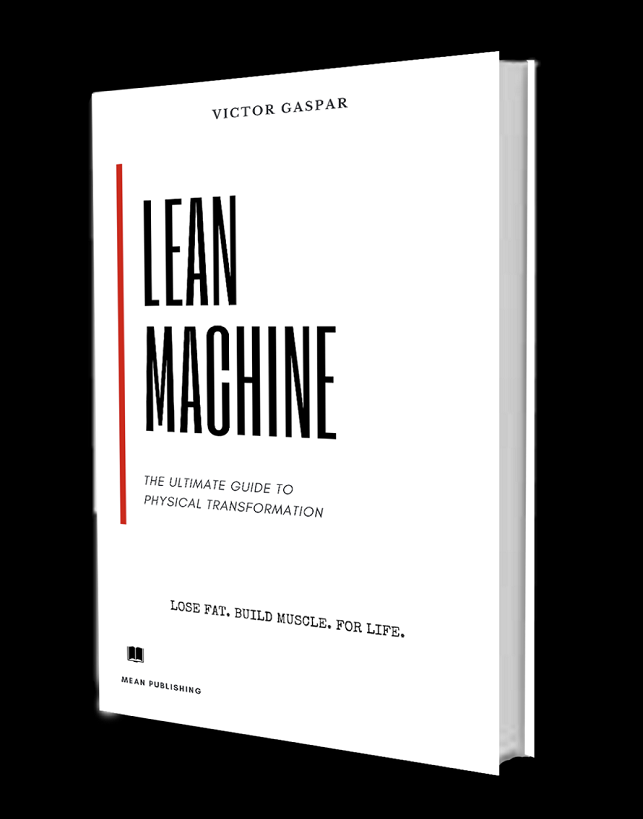
“Competence is such a rare bird in these woods that I appreciate it whenever I see it.” – Frank Underwood
I’m no better than you.
I’ve bought into so many bullshit diets during my time that I know what it feels like to put all your faith into a new program or expert.
For many years, I was chasing “the answer” to my physique challenges like a dog chasing a bone.
I did my time researching, experimenting, failing. My conclusion after all these years?
Trust no one.
Industry trends come and go like the seasons. But your problems remain the same.
Remember how just a few moons ago breakfast was “the most important meal of the day”? Not eating first thing in the morning was considered the cardinal sin of dieting. Today, on the other hand, you have people claiming the exact opposite (and that is precisely why you need to become your own master).
According to them, skipping meals and going long stretches without food is the holy grail of human fitness. But as always, they only give you half the story.
After experimenting with different fasting protocols for over 7 years and closely following the scientific literature, I believe I have a good understanding of the pros and cons of intermittent fasting.
But let me make something perfectly clear upfront: Fasting is not the answer to your six-pack prayers, and in fact, may be responsible for more frustrated dieters than you think.
It’s time to look beyond the fairy tales and reveal the truth about intermittent fasting.
Benefits of intermittent fasting
I’m not surprised intermittent fasting has reached the level of popularity it’s currently enjoying.
After decades of brainwashing from the fitness industry, telling people to eat protein every 20 minutes, IF has brought back some sense and perspective to the dieting world.
You won’t lose all your hard-earned muscle if you skip a meal here and there. In fact, there are some legitimate benefits to this eating pattern (IF is not a diet per se).
For one, I do appreciate the freedom short-term fasting (i.e. breakfast skipping) grants. You’re not a slave to your meals or routine meal times on typical IF protocols. You don’t have to sit down to eat every couple hours and that liberates time and energy to go after more important things in life.
Intermittent fasting also makes sticking to a low-calorie diet more manageable. Since you don’t eat for large parts of the day, it allows for bigger more satisfying meals once you resume feeding (without breaking the calorie bank), which is critical for long-term diet compliance and success.
Not stuffing yourself first thing in the morning also makes for a very productive chemical cocktail in your brain. With stress hormones elevated, you feel alert, focused and ready to go. No amount of coffee can get you that effect in a fed state.
Sounds great, huh? Yeah. But the benefits don’t last.
Especially if you’re involved in regular bouts of heavy resistance training. Not eating for long stretches is stressful on the body. And once you combine fasting with intense resistance training and a calorie-restricted diet you’re just asking for trouble.
Short-term stress is beneficial to your body, yes. Chronic stress, however, will derail your hormones and your ability to build muscle and burn fat.
“But what about all the researched health and longevity benefits of intermittent fasting?”
The benefits, of which there are many, are due to the calorie restriction and weight-loss, not due to any magic fasting brings to the table. Eating less and losing weight in and of itself will greatly improve markers of health. Fasting isn’t the only way to get there, though.
I know you want to believe that there’s more to it. But that’s not how your body thinks.
Athletes need not apply
Personally, after skipping breakfast for months (without changing any other element in my diet or training), I noticed my body temperature had decreased (a sign of metabolic slowdown). My hands were cold all the time, I was more irritable and my energy levels would frequently crash in the afternoon.
I got very lean and was able to maintain my condition with little effort, but my body was slowly fading. Performances in the gym were stagnant and sleep wasn’t as deep and restful as before. I also felt less creative during the fasting period of the day (more driven, but less creative).
I was fighting a losing battle. But I learned my lesson.
I strongly advise against IF for individuals involved in rigorous physical training. The side-effects of this eating pattern will outweigh the benefits. Perhaps not right away, but it will catch up to you. It’s just a matter of time.
If you’re lean, training intensely and eating a diet based on nutrient-dense foods, fasting/skipping meals will do more harm than good. It will suppress thyroid function and lower testosterone levels (key hormones for regulating your metabolism).
Don’t believe me? Check out this 8-week study on resistance-trained individuals.
With that said, if you have a lot of weight to lose and/or are mostly sedentary IF can be a legitimate dieting tool. Feel free to use it as a weapon in your arsenal. Skip breakfast (and lunch?) when you want to jump start fat-loss or maximize productivity early in the day.
But keep in mind that you’re digging into your bodies resources to boost short-term performance.
At the end of the day, you need to be in a caloric deficit to lose weight. How you go about creating that deficit is secondary.
The Optimal Human Diet
As cellular organisms, humans have an inherent need for “nutritional stress”. Ori Hofmekler, the true pioneer of intermittent fasting understood this better than anyone when he brought his theories to the public.
The optimal diet is one that cyclically induces a state of negative energy balance, where energy expenditure exceeds intake. Periods of low food consumption, followed by complete nutritional compensation can improve insulin sensitivity, hormonal function (i.e. androgen receptor sensitivity) and promote longevity (energy deficit, remember?).

And fasting is not a new invention. It has been used for millennia as a health remedy. Think about it, every major religion integrates some form of fasting.
Where does this leave you, though?
You’re training intensely 3-5 days a week. You’re making sure to consume adequate amounts of nutrient-dense foods and getting sufficient protein every day. Is IF the missing piece to your physique transformation?
Unlikely.
Granted, like many others, I’ve had some initial success following different fasting protocols. Looking back, however, I realize that was simply because my diet was a mess.
Things are different now. I may use intermittent fasting (i.e. breakfast skipping) occasionally if it fits my schedule. But that’s as far as I will take it.

I said it before and I’ll say it again. The benefits people experience with intermittent fasting are due to the energy deficit.
It’s the fact that they’re consuming less food and thus experience a host of (short-term) benefits such as better digestion, better brain and immune function, weight-loss etc. But that’s where the fun stops.
Intermittent fasting is not a valid long-term strategy. If you want to get shredded, let go of these gimmicks and get on a real program.
Also, make sure to read my article on The Fasting Experiments.
I’ve reconsidered my position on fasting. To some extent.
Thank you for reading
Victor
[…] why did this diet work so well for me initially, and why are intermittent fasting protocols now a staple in the fitness and health community? Negative energy […]